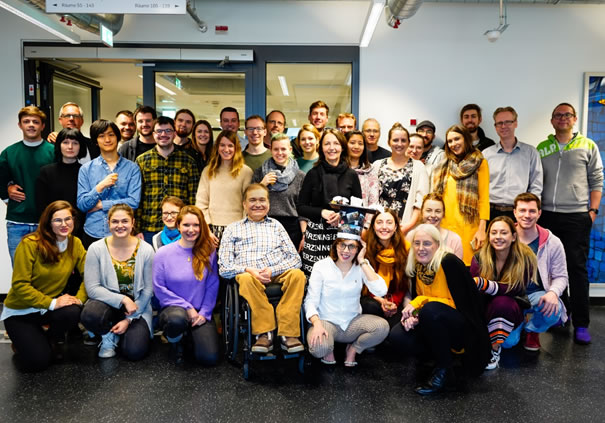2019-12-12

On Thursday, December 12, 2019, Caro successfully defended her doctoral thesis on “Personality Neuroscience: Biological Basis of Neuroticism and Volition”.
If one types “Personality Psychology” into a search engine and just opens the first Wikipedia link, the astonishing finding is that this branch of psychology is so remote from neuroscience as hardly any other field of psychological inquiry. As beautifully laid out in Caro’s introduction to her thesis, this is a bit related to the failure of the first grand neuropsychological theory of Eysenck. But it is also a result of serious methodological and conceptual problems. Caro bravely steps into this missing link by focusing on neuroticism and volition. This last point implies also a reach-out into motivation research. In a series of breath-taking studies, Caro then demonstrates links between the dendritic organization of parts of the amygdala and neuroticism, the impact of efficient dopaminergic transmission and the tendency to procrastinate, and correlations between types of action orientation and gender as well as intelligence. Most importantly, she also demonstrates that not only amygdala volume but also the functional connectivity between amygdala and the anterior cingulum is correlated with the tendency of individuals to either start acting or to go on waiting. This last study was published in Psychological Science and became a media bestseller. Each and every of these studies is written by Caro with a profound knowledge of psychology and neuroscience and with the desire to achieve mechanistic explanations. Thus, Caro demonstrates her ability to be a perfect biosychologist.
The committee consisting of Onur Güntürkün, Nikolai Axmacher, Boris Suchan, and Robert Kumsta was deeply impressed and awarded this great thesis with a magna cum laude. Soon after this success, Caro fulfilled her plan to leave science, but with the promise to hopefully come back.
Congratulations Caro for being such an outstanding biopsychologist! We terribly will miss you.

On Thursday, December 12, 2019, Caro successfully defended her doctoral thesis on “Personality Neuroscience: Biological Basis of Neuroticism and Volition”.
If one types “Personality Psychology” into a search engine and just opens the first Wikipedia link, the astonishing finding is that this branch of psychology is so remote from neuroscience as hardly any other field of psychological inquiry. As beautifully laid out in Caro’s introduction to her thesis, this is a bit related to the failure of the first grand neuropsychological theory of Eysenck. But it is also a result of serious methodological and conceptual problems. Caro bravely steps into this missing link by focusing on neuroticism and volition. This last point implies also a reach-out into motivation research. In a series of breath-taking studies, Caro then demonstrates links between the dendritic organization of parts of the amygdala and neuroticism, the impact of efficient dopaminergic transmission and the tendency to procrastinate, and correlations between types of action orientation and gender as well as intelligence. Most importantly, she also demonstrates that not only amygdala volume but also the functional connectivity between amygdala and the anterior cingulum is correlated with the tendency of individuals to either start acting or to go on waiting. This last study was published in Psychological Science and became a media bestseller. Each and every of these studies is written by Caro with a profound knowledge of psychology and neuroscience and with the desire to achieve mechanistic explanations. Thus, Caro demonstrates her ability to be a perfect biosychologist.
The committee consisting of Onur Güntürkün, Nikolai Axmacher, Boris Suchan, and Robert Kumsta was deeply impressed and awarded this great thesis with a magna cum laude. Soon after this success, Caro fulfilled her plan to leave science, but with the promise to hopefully come back.
Congratulations Caro for being such an outstanding biopsychologist! We terribly will miss you.